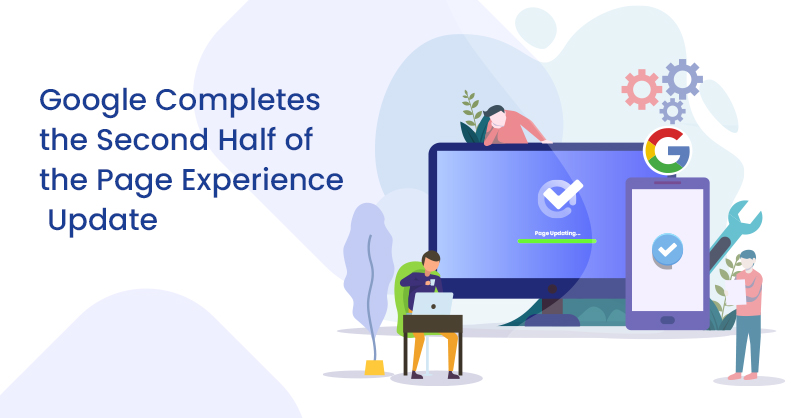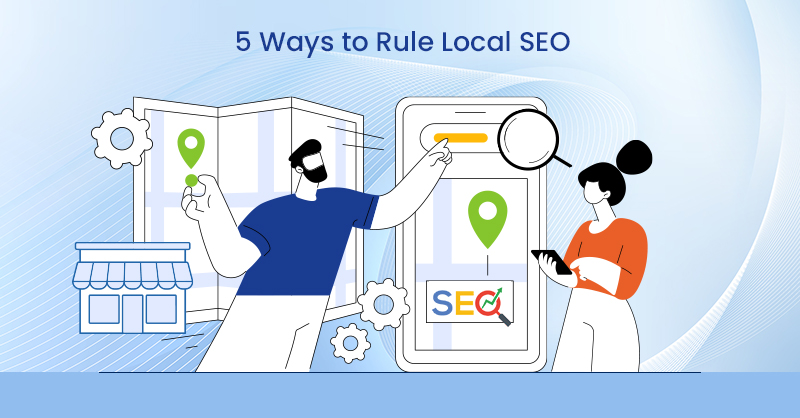Google simplifies the page experience report for website owners
Back in 2020, Google announced new updates to their search algorithm. Chief among these updates was a new feature designed to help users find websites that offer pleasant online experiences, enter Google’s page experience update.
The update has been rolling out slowly. The first half of the page experience update was launched on June 15th, 2021 and the remaining updates were finished on August 31st, 2021.
With the update now complete, let's take stock of the changes made and what it means for web developers and digital marketers.
Google Search Console Removes the Ad Experience & Safe Browsing Reports from the Page Experience Report
On August 4th, Google removed the Safe Browsing report and the Ad Experience Report from the Page Experience report in Google Search Console. The ad experience widget did not contribute data to the Page Experience report anyways so its removal is no surprise there.
As to why they decided to remove the Safe Browsing Report from the Page Experience Report Google says,
“Sometimes sites fall victim to third-party hijacking, which can cause Safe Browsing warnings to be surfaced. We recognize that these issues aren't always within the control of site owners, which is why we're clarifying that Safe Browsing isn't used as a ranking signal and won’t feature in the Page Experience report. Any Safe Browsing flags will continue to be surfaced in the Search Console outside of the Page Experience report.”
Both the Safe Browsing Report and the Ad Experience widgets are still available in Google Search Console as standalone tools.
With those reports removed, the Page Experience Report in Search Console will consist of the Core Web Vitals, the Mobile Usability Report, HTTPS usage and Intrusive interstitials.

Source: Google
With those changes complete, here are the updated criteria for getting a good page experience rating on Google:
|
Good |
Failed |
All of the following are true:
|
At least one of the following is true:
|
- Source: Google Page Experience FAQ
One important thing to note about the criteria for the Page Experience Report is that your website’s HTTPS status will receive a ‘good’ rating as long as at least 75 percent of all your website’s pages are served using HTTPS. That means your website may still have pages using HTTP.
If you are expecting visitors to add their financial or personal information to your website (like buying a product or signing up for an email), you should ensure that all your pages are using HTTPS. Websites with HTTPS ensure that all data entered into your website is encrypted, effectively stopping hackers from stealing private information from your visitors.
During the second update, Google also fixed a common bug that made having no data for Core Web Vitals give your website a ‘Failing HTTPS’ grade. Since the two are not related this is a common-sense fix that should bring some relief to beleaguered SEOs and website developers.
Does it matter if you provide a good page experience or not?
So now that you have learned a little bit more about the page experience update, should you care if your website has a good page experience?
Page experience will be used as a ranking signal for a URL in Google Search results on mobile devices. Once every report in the Page Experience Report has a ‘Good’ status, your website will be effectively optimized for this new metric. Before you get too excited it is worth noting that although page experience is important and is a metric that contributes to how well you rank in search results, it is just one of the hundreds of ranking signals that Google will uses.
Google has previously said that having a ‘good’ on-page experience will receive a badge that will be displayed beside your website’s listing in Google’s search results. The badge looks like a star inside a grey circle.

- Source: SEO Roundtable
Getting the page experience badge next to your website’s Google Search listing can help your website stand out from the competition and draw in more visitors.
After all, who would want to go to a website with a bad on-page experience?
By providing a pleasant experience on your website will encourage visitors to stay longer and consume your content or return in the future. In both cases, you are increasing your opportunities to convert visitors. Website’s with a poor page experience will have a harder time keeping visitors on their platform, and in turn, be less likely to get them to take the desired action.
Optimize Your Page Experience to Grow Your Business
While your website’s page experience is not a significant ranking factor, it will be used by Google to determine who will rank higher in tie-breaker situations. If two websites have similar SEO metrics, then the one with a good page experience rating will be ranked higher. If you operate in a heavily competitive field like real estate, insurance, finance or travel, gaining even the slightest upper hand over your competitors can yield significant results.
Even if Google determines that your website has a ‘good’ page experience rating, it doesn’t mean your work is done. To stay ahead of the competition and atop SERP rankings you need to stay on your toes and keep striving for improvement across your website, including the type of experience you provide visitors.
If you want to learn more about the quality of your website’s on-page experience and how you can improve it, contact TechWsye at: 866.288.6046 or visit our contact us page. When you do, you can get in touch with SEO experts who can grow your website and create a great page experience for visitors.






